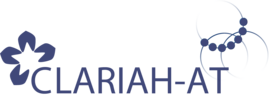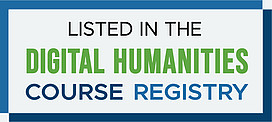Other current projects
SISTE VIATOR. Latin on Stone 2.0. Latin Inscriptions for Digital and Out-of-School Learning (LIDAL)
- In cooperation with the institute of classics
- Funding: BMBWF, Sparkling Science 2.0 (https://www.sparklingscience.at/de/show-project.html?--typo3_neos_nodetypes-page%5bid%5d=1284)
- Scope: 2022-2025
- Contact: Christian Steiner (christian.steiner(at)uni-graz.at)
SISTE VIATOR – This can often be read on gravestones. But what does the inscription mean? Why is it in Latin? What period does it date from? Who commissioned it and why? Who was supposed to read it?
Latin inscriptions, which can be found in large numbers from antiquity to the present day, usually raise many questions for those looking at them today. Language, writing, abbreviations are puzzling, and we lack historical context. Yet we often stop to read what is written there. And whoever had SISTE VIATOR chiselled on a gravestone wanted exactly that: “Stand still, wanderer” commands the inscription. So we are invited to stop, take our time and enter into a conversation with the inscription.
The [LIDAL] project starts precisely here and pursues three goals: (1) Whoever finds a Latin inscription is invited to report it to us (Citizen Science). We collect them in a database according to previously defined criteria. (2) The focus, however, is on pupils from Austria and Germany working with us to prepare a representative selection of these inscriptions for school teaching (text, translation, notes, questions/answers, etc.) and publish them on a web portal. Pupils will therefore help to decide what needs to be explained. The material is presented in such a way that ‘inscription tours’ – real and virtual – can be created, through which information can be obtained and competences deepened while ‘passing by’. This can be a tour of medieval inscriptions in Graz, but tours to consolidate grammar knowledge, to learn vocabulary or to gain new insights into world or local history are also possible – all individually ‘walkable’ on site or virtually. The web portal is to be used as an innovative tool for digital learning across subjects (Latin, history, religion, etc.) and, above all, for individual learning outside the classroom. The pupils will also have the opportunity to present and discuss their results at an international pupils’ congress. Finally (3), scientific research, e.g. on the use of inscriptions in the classroom, on cross-curricular and cross-border learning or on digitalisation, will provide new insights. Additionally, it is planned to design a version of LIDAL with the support of the pupils that runs on mobile phones and can thus also be used for tourism.
Celtic Divine Names in Latin Inscriptions of the Military Zone in Germania Superior on the Left Bank of the River Rhine. Religious Phenomena in a Cultural Contact Zone
- In cooperation with the Institute of Classics
- Funded by: FWF
- Scope: 2021-2024
- Contact: Elisabeth Steiner (elisabeth.steiner(at)uni-graz.at)
As a continuation of the FWF-project, “Celtic Divine Names in the Inscriptions of the Roman Province Germania Inferior. A Case Study on Religion in the Context of Cultural Contacts and Cultural Transfer” (P 29274-G25), the new project will focus on the military zone in Germania Superior on the left bank of the river Rhine, where a similar population structure can be observed. Thus, it is intended that the results so far achieved be verified, investigated more thoroughly and added to.
The work of the project will be divided in two parts. Part one will comprise the compilation and new edition of all the relevant inscriptions and will be freely available online. Part two will be provided in print. It will contain a detailed presentation of each Celtic divine name in the study area, as well as an analysis of all those Celtic divine names, particularly focusing on sociocultural aspects and aspects of the history of mentalities concerning religion in cultural contact zones.
Early Medieval Glosses And The Question Of Their Genesis: A Case Study On The Vienna Bede Gloss-ViBe
- Funded by: EU
- Scope: 2021–2023
- Contact: Bernhard Bauer (bernhard.bauer(at)uni-graz.at)
- Planned publication: 2022
The project is funded by a H2020-MSCA Individual Fellowship. The main research question is: “Are vernacular glosses original compositions or translations from original Latin glosses?” This question can only be answered through an interdisciplinary approach. Therefore, the present project investigates the Celtic and Latin glosses on the Venerable Bede’s De Temporum Ratione found in the manuscript Vienna, Österreichische Nationalbibliothek, Codex 15298 (olim Suppl. 2698) from different angles including digital humanities, philology and linguistics. The two main aims are:
- A comprehensive digital edition of the Vienna Bede including the main text and the paratext
- A theoretical framework of research early medieval glossed corpora
The Memoirs of Countess Schwerin (1684-1732). Digital edition of a unique self-testimony
- In cooperation with the Austrian Academy of Sciences
- Funded by: FWF
- Scope: 2022-2025
- Project contact: Georg Vogeler, Selina Galka
The memoirs of Countess Schwerin, written around 1724, are a unique source on the cultural and gender history of two of the most important European courts, namely the imperial court in Vienna and the Prussian royal court in Berlin. They have survived in two non-identical copies, one in Aix-en-Provence and one in Vienna. Geographically, the life story told in the text extends from the Dutch lands to Poland, Warmia, and Silesia, but has its focus at the courts of Berlin and Vienna. The text is remarkably dense and multi-layered, allowing rare insights into female court networks and life worlds.The goal of the project is a digital edition that combines this unique source with epistemologically motivated research. The user interface will allow different text variants to be juxtaposed with the facsimiles. The texts will be processed with modern digital technologies and enriched with norm data; in addition, the extensive scholarly commentary will be organized as a flexible database. Central to the project is the visualization of the social networks extracted from the texts. The modelling of the texts also makes it possible to apply a wide variety of computer-assisted text analysis methods, such as topic modeling.
Kofler intermedial
- Funding: FWF
- Scope: 2019 - 2022
- Contact: Helmut Klug
- http://www.wernerkofler.at
The aim is to comment on and print the 24 radio plays, the play and the film script of this aesthetically highly reflective author. Volume IV of the edition will contain the primary texts as well as the commentaries. At the same time the commentary will be published online. In this way, this important aesthetic position within Austrian literature will be made visible in the whole range of its writing styles and a hybrid edition will be offered which is characterised by practicability, manageability and a high user factor, thus satisfying not only the needs of literary studies but also those of an interested readership. A further goal is to explore the possibilities of the Internet as a medium for the publication of scientific editions of radio plays. In addition, a research platform for the investigation of intermedial phenomena is being worked on.
Digital Edition Publishing Cooperative for Historical Accounts (DEPCHA)
- Funding: The Andrew W. Mellon Foundation and Wheaton College Massachusetts
- Scope: 2017-2023
- Contact: Christopher Pollin
- http://gams.uni-graz.at/depcha
The Project “Digital Edition Publishing Cooperative for Historical Accounts”, a Andrew W. Mellon funded cooperation of five US partners and the Centre for Information Modelling at Graz University, aims to link the knowledge domain of economic activities to historical accounting records. For this purpose the so-called “Bookkeeping-Ontology” is developed. It creates a publication hub for digital editions on the web, converting multiple formats into RDF and publishing these alongside the transcriptions and allows the usage of various retrieval and visualization functionalities, as well as interoperability and reuse of information in the sense of Linked Open Data.
Philingk: Linked Knowledge on History of (Romance) Philology and Linguistics
- Funding: FWF
- Scope: 2021–2023
- Contact: Elisabeth Steiner
- http://schuchardt.uni-graz.at
The project Philingk: Linked Knowledge on History of (Romance) Philology and Linguistics is a cooperation between the Institute Centre for Information Modelling - Austrian Centre for Digital Humanities (ZIM-ACDH) of the University of Graz, the Institute of Linguistics of the University of Graz, and the Institute of Romance Studies of the University of Zurich. It deals with the correspondence between Gaston Paris and Hugo Schuchardt (185 letters) and its significance in the history of (Romance) philology and linguistics. The two correspondents, although almost the same age and academically socialized in comparable contexts, followed very different paths and maintained an extremely fruitful epistolar discourse until Paris' death. The correspondence will be edited both analogously and digitally (hybrid edition), integrated into the existing digital Hugo Schuchardt Archive, annotated and indexed, and integrated into the aggregation server CorrespSearch of the BBAW (Berlin). The goal is to virtually represent this central component of a discourse network that existed in the later 19th century, as well as to make it publicly accessible (open access) and available for new research questions.
The Imperial Diet of Regensburg of 1576
- In cooperation with the Institute of History
- Funding: Austrian Science Fund
- Scope: 2018-2021
- Contact: Roman Bleier
The project completes the editorial project “Reichstagsakten: Reichsversammlungen, 1556–1662”(Imperial Diet Records: Imperial Assemblies, 1556–1662) sponsored by the Historical Commission at the Bavarian Academy of the Sciences and Humanities. Since 1988, this project has overseen the editing of source material covering eleven imperial assemblies and the publication of fifteen sub-volumes (approx. 10,800 pages). The FWF/DFG project is a collaborative effort by the Historische Kommission bei der Bayerischen Akademie der Wissenschaften and the University of Graz to transcribe and electronically edit the Imperial Diet Records from 1576. The edited text will be enriched with semantic markup and metadata using TEI/XML. This will open the generated research data for research using digital tools, allow for the connection to external, semantically structured resources and datasets following Semantic Web strategies and ensure the long-term preservation of the data.
Handbook of Grammatical Variation in Standard German
- Funding: Austrian Science Fund
- Scope: since 2012
- Link: www.variantengrammatik.net
- Contact: Gunter Vasold
This project examines the areal induced grammatical differences of standard German. While lexical phenomena are well documented other parts like morphology, morphosyntax and syntax are not equally well covered. This new corpus-based approach aims at the first documentation of such areal differences with the publication of a handbook. The center supports the researchers with a virtual research environment facilitating the structured compilation, documentation and interpretation of the corpus data.
Prosopographical database of ancient hetaerae
- Funding: internal
- Scope: Since 2013
- Contact: Gunter Vasold
In cooperation with the Department for Ancient History, this project will create a prosopographical database of all hetaerae mentioned in ancient sources. Each dataset will be linked to the respective text and secondary literature.
Gralis Text-Korpus
- Funding: Austrian Science Fund
- Scope: Since 2009
- Link: http://glyph.uni-graz.at/cocoon/gralis
- Contact: Gerlinde Schneider
Nested in a major project at the Department of Slavic Studies and based on developments of the Institute for Natural Language Processing at the University of Stuttgart, a framework for managing and conducting complex searches was created for multimodal parallel Slavic language corpora.
IPR and Copyright Issues in Science and Education
- Funding: Internal (FNMA)
- Scope: Since 2009
- Contact: Walter Scholger
A national initiative of experts gathered from all Austrian universities is pursuing a change of the pertinent Austrian laws and offering advice, training and guidelines to colleagues at Austrian universities.







